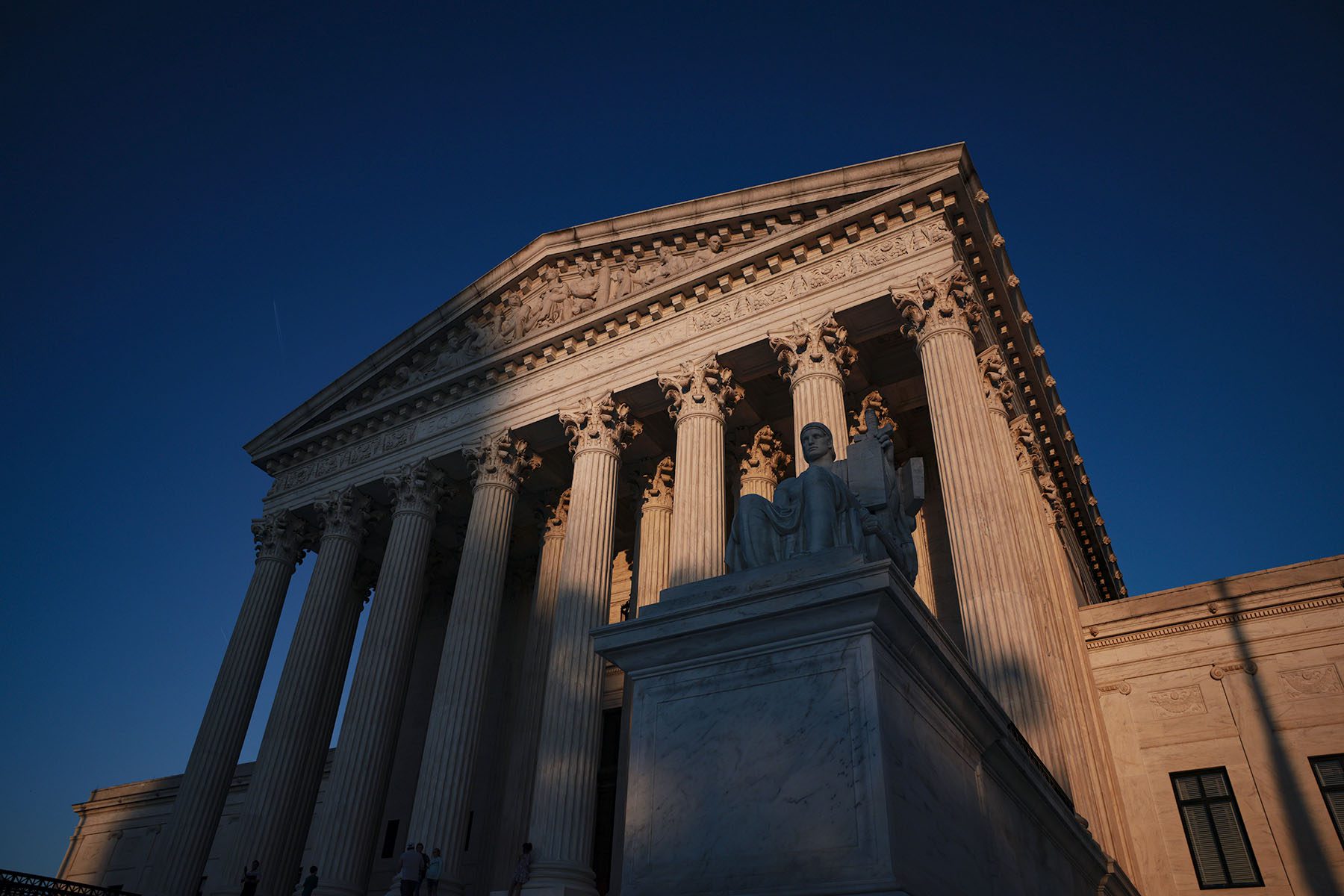Elizabeth Prelogar, President Joe Biden’s nominee for U.S. solicitor general, was confirmed 53-36 by the Senate on Thursday. As the fourth-highest ranking member of the Justice Department, Prelogar, with her team, will represent the federal government in cases before the Supreme Court, petition the high court to take up certain cases and decide whether to appeal rulings from lower courts.
She is the second woman in the country to hold the position through Senate confirmation; current Supreme Court Justice Elena Kagan became the first in 2009. The role will not only give Prelogar an important seat in front of the Supreme Court, but it puts her in a position to help elevate other lawyers from underrepresented gender and racial backgrounds.
Her appointment comes alongside broader conversations about diversity in the legal profession, on the Supreme Court itself and the attorneys who have opportunities to argue before the country’s highest courts.
“We know that the voice of women arguing before the Supreme Court is less common than it is for men. Fewer women argue cases before the court, so having her in that role will certainly increase the presence of women in this sort of public way,” said Renee Knake Jefferson, a professor at the University of Houston Law Center.
Prelogar became the acting solicitor general in January but had to step down in August to go through the official confirmation process.
The U.S. federal government is involved in about two-thirds of all the cases considered by the Supreme Court. Prelogar holds a lot of power to frame the federal government’s legal position on some of the country’s most significant cases.
“How you argue a case to the court makes a difference. … A lot of times when advocates are arguing, they’re recommending to the court a way to resolve the case, not just the result they want, but how to get there. So who’s saying that message matters,” said Debbie Shrager, director of the Supreme Court Institute with Georgetown University.
Even when the U.S. federal government is not a party in a particular case, the solicitor general can play a vocal role. Most frequently in Supreme Court cases, someone who is not a named party in the lawsuit will file what’s known as an amicus brief to express their support for one side. Any individual or group who files such a brief can have the opportunity to make an oral argument, but “the modern Court grants this privilege almost exclusively” to the solicitor general, according to a report published in the Vanderbilt Law Review last year.
From the 2010 to the 2019 Supreme Court terms, the court granted 15 of the 43 requests by litigants outside of the solicitor general’s office to make an amicus oral argument, the article’s authors wrote. During that same period, the court granted 306 of the 307 requests made by the solicitor general.
People who work in the solicitor general’s office “are some of the best attorneys in the country,” Shrager said. “They’re experts in so much and the court is going to benefit from their writing. I think it’s a very important aspect of the decision-making process of the court.”
Prelogar had a smooth confirmation process, though Republican lawmakers did question her decision to change the federal government’s position in several cases. She is expected to speak on abortion rights as the court considers the merits of Texas’ six-week abortion ban and a 15-week abortion ban on hold in Mississippi. It is unclear whether Prelogar will be sworn in by November 1, when the Supreme Court will hear two challenges to Texas’ abortion law, including one brought by the Justice Department that argues Texas enacted the law “in open defiance of the Constitution.”
Prelogar can also create a pipeline for other lawyers from underrepresented backgrounds through her office. The solicitor general’s office has traditionally been a key way for women lawyers to get their first opportunity to argue before the Supreme Court and go on to argue more of these high-profile cases. The three women who currently have the most Supreme Court arguments all worked in the solicitor general’s office at one point.
The number of women arguing cases in the solicitor general’s office dropped off during former President Donald Trump’s administration. In the 2016 term, women argued 18 of the 48 cases on behalf of the solicitor general’s office. In 2017, that number was nine out of 48 arguments for the Trump administration, according to numbers analyzed by Bloomberg Law. More broadly, of the 156 times lawyers argued before the Supreme Court between October 2019 and May 2020, women argued 20 times, or 13 percent, Bloomberg Law reported. The lawyers who argue in front of the Supreme Court are also overwhelmingly White.
Beyond her perspective as a woman, Shrager noted Prelogar’s strong experience. From 2014 to 2019, Prelogar was an assistant to the solicitor general. Prior to the government she worked in private practice. She previously clerked for Supreme Court Justices Kagan and Ruth Bader Ginsburg, as well as Attorney General Merrick Garland when he was a judge for the U.S. Court of Appeals for the D.C. Circuit.






